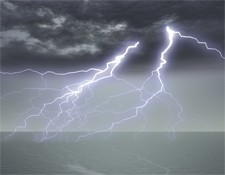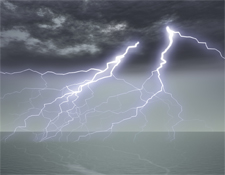
 Every season comes with its own potential disaster, such as ice storms, hurricane, or floods. So, it’s extremely important that you have your home and home office prepared for an unexpected crisis to hit. It’s best to be over prepared, than under when it comes to a natural…and sometimes not-so-natural disaster.
Every season comes with its own potential disaster, such as ice storms, hurricane, or floods. So, it’s extremely important that you have your home and home office prepared for an unexpected crisis to hit. It’s best to be over prepared, than under when it comes to a natural…and sometimes not-so-natural disaster.
If you are working from the home, you have a duo concern for being prepared. It’s not only your home and furnishings, but it’s your livelihood as well. What would you do if you suddenly didn’t have a place to live, or a way of working to help start building your life back up?
I have experienced and seen many disasters in my travels, and it has brought on a passion for bringing the awareness to others on how to best save, or quickly recoup all your hard work. So, read on to learn what you can do to be as prepared as possible when a crisis strikes.
Backup Your Data Remotely
One of the easiest and quickest ways to protect some of your work is to have an online data backup for your computer files. There are a few programs available, such as Carbonite, which will automatically store all your data from your computer, as it is being typed in.
So, if you have written material, contracts, or spreadsheets, you don’t have to worry about losing it all if you store it remotely with a backup software program. These programs are a low cost guarantee and peace of mind in knowing that you will have your data back and ready for you, no matter what happens.
The great thing about these programs is that it’s not a flash drive that might get damaged in whatever disaster that strikes, because it’s not physically in your office.
Be Properly Insured
A mistake often made by people who are working from home is that they believe their homeowner’s insurance will suffice. While it might cover a minor amount, it most likely will not provide you with enough insurance to completely rebuild your office, complete with furniture and equipment.
Many homeowner policies might cover up to $2,500, but unless you only need a computer, that probably won’t be enough to get you back up and running properly.
It’s best to talk with your agent to find out what you actually need to properly insure your business. Some policy considerations for a home-based business are:
- Business Owner’s Policy: For small business owners, this is probably the most common, combining liability with major property.
- In-Home Business Policy: This will add more coverage to your liability and equipment, relating to business, than a traditional homeowner’s policy. Things such as offsite property, papers and accounts receivables are often covered under this type of policy.
- Homeowner’s Policy Endorsement: Having the least amount of coverage, this is an option for those who work out of the home part time, or don’t have a lot of equipment and liability.
Again, speak with your agent to know what is best for your particular business. Variables such as how many employees and deliveries you have will also make a difference in what is best for you.
Home Emergency Kit
Perhaps one of the most ignored protections for households and home businesses is an emergency kit for the home. While you are protecting your assets, let’s not forget your biggest one…you and your family.
It won’t matter how well protected your equipment and data is, if you are not physically and mentally well enough to do anything with it. Do you have a kit on the premises that will aid you in case an earthquake strikes, or a tornado? If the power goes out, knocking out food and water sources, an emergency kit can help you survive until help arrives. You also need an emergency escape ladder for upper bedroom windows in the event of a house fire.
If you travel for business (or even leisure), consider a mobile kit, such as winter survival kit for cars. Yes, keeping your business assets safe is important. But, keeping yourself healthy and safe is vital.
Generator for Backup Energy
A good way to protect your working ability is to have a generator, especially if the power goes out for long periods of time. If a winter ice or a summer wind storm knocks out the power in your community, it might be days before you get your power back.
To make sure you are not out of work that entire time, you might want to consider adding a generator to your home. You can get a portable one, but then you will have to be adding fuel to it every so often.
Another option would be to permanently install a standby generator to the house. They are a bit more costly, but will kick in automatically when your power goes out, using your gas line. And you could probably make up the difference in cost if you sell your home in the future.
In Closing
You never know when a disaster could strike, with the exception of hurricane warnings. But, even then, it will save you a lot of frustration and money if you are properly prepared for anything.
Leave a Reply